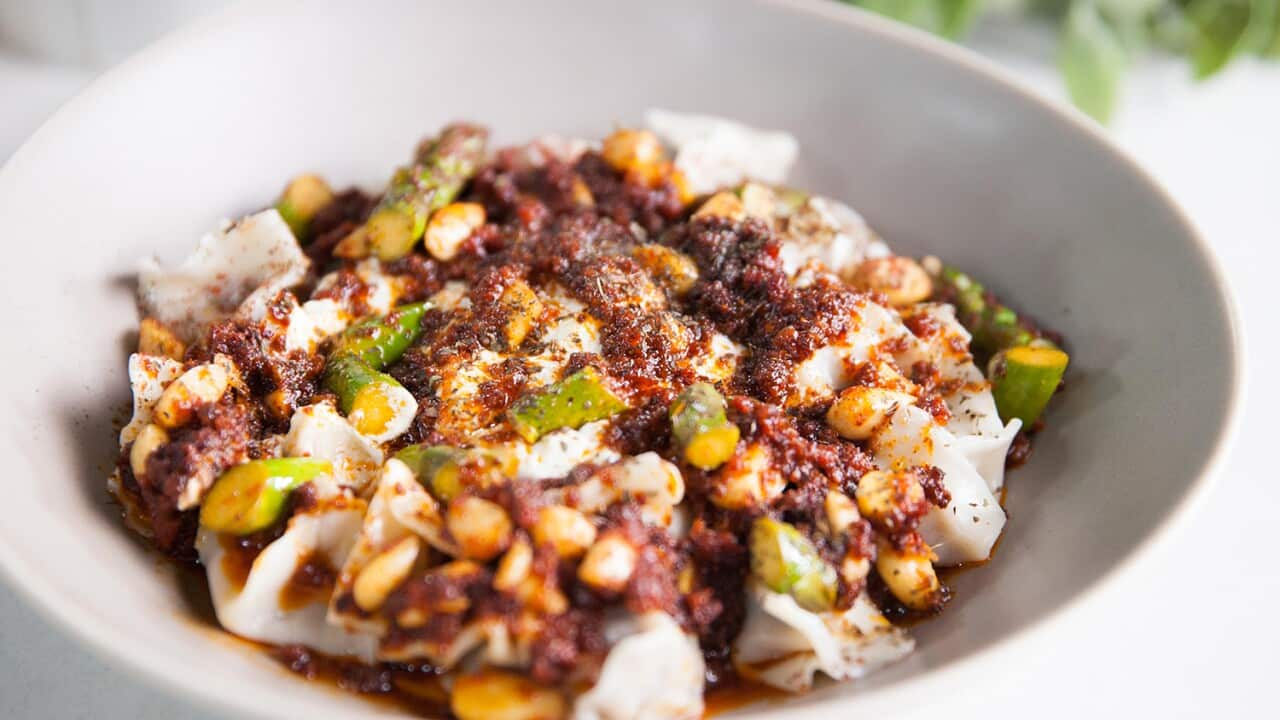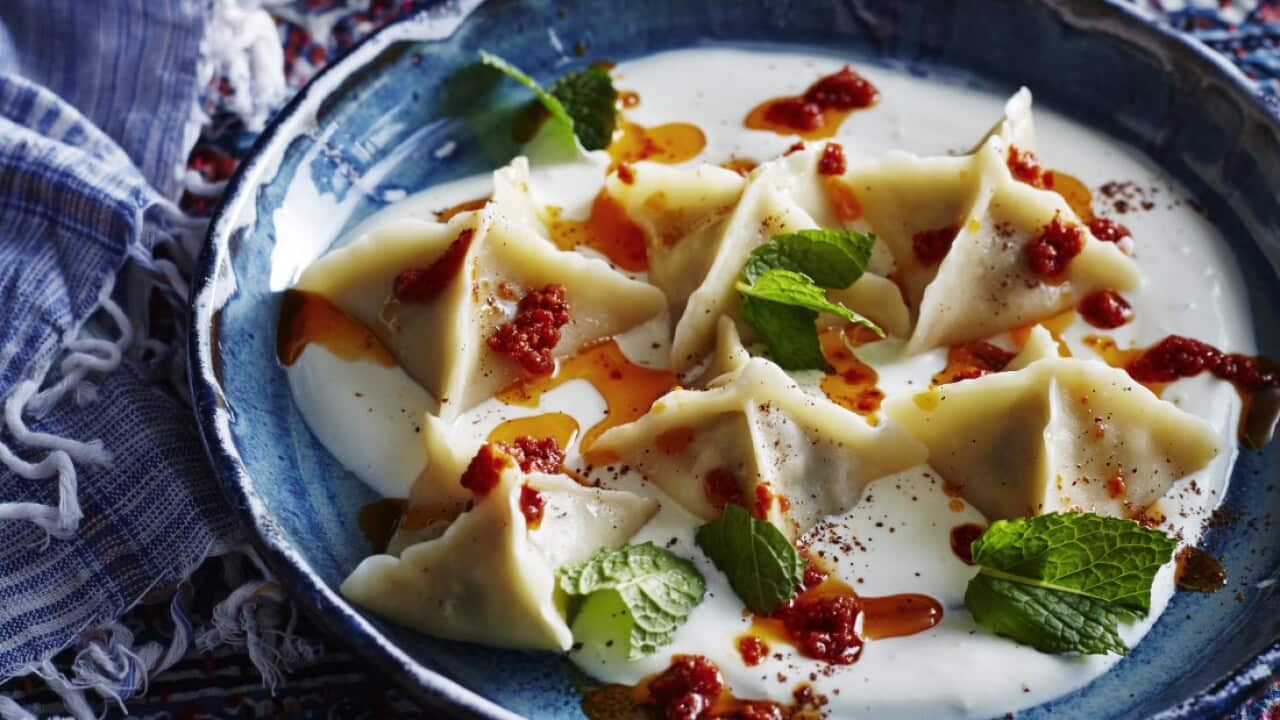Sometimes when my mother talks about her childhood in Turkey, she can go to some pretty dark and traumatic places, such as the local hamam (bathhouse) where female community get-togethers predominantly occurred.
“I can still hear the sound of this particular woman’s pendulous breasts as she threw each one over her shoulder to scrub underneath,” my mother says, shuddering at the memory. “Other times, there was much shrieking and yelling from the elders because some young woman would announce her pregnancy and insist she must have somehow gotten pregnant from sitting naked on the wet, heated stone.”
They’re two less joyous memories of course; for the most part, my mother remembers those lazy afternoons to be filled with much chatter and laughter as the neighbourhood ladies downloaded on one another weekly – free from the prying ears of their men.%20recipe%20image.jpg?imwidth=1280) Having heard the hamam stories over the past four decades, I’m very pleased to report my childhood community gatherings with the Turkish womenfolk happened sans nudity, but in a conga-line of people’s homes where pieces of furniture had been moved out to make way for the gaggle of rough-rolling women. The premise: the ladies would be there to make , a labour-intensive and incredibly tiny Turkish ravioli, but over time I came to understand it was more about making time for social connection and gossip – plenty of gossip.
Having heard the hamam stories over the past four decades, I’m very pleased to report my childhood community gatherings with the Turkish womenfolk happened sans nudity, but in a conga-line of people’s homes where pieces of furniture had been moved out to make way for the gaggle of rough-rolling women. The premise: the ladies would be there to make , a labour-intensive and incredibly tiny Turkish ravioli, but over time I came to understand it was more about making time for social connection and gossip – plenty of gossip.
%20recipe%20image.jpg?imwidth=1280)
Manti may be small Turkish dumplings, but they can lead to big social gatherings. Source: Brett Stevens
Mantı, as the Turks know it, is essentially paper-thin pasta dough, which is rolled out into large sheets, cut into tiny diamonds and filled with a spiced beef or lamb mixture. It is then usually boiled (although lately, fried and baked versions are becoming more popular), before being served with garlic yoghurt, topped with melted butter and red pepper and dusted with dried mint and chilli flakes. Many countries have a version of the dish, but in Turkey, it’s generally accepted that the dish first arrived in via the Mongols in the 13th century. The region, in the centre of the country, is the heartland of mantı, but the dish can be found everywhere, from high-end restaurants to suspicious-looking cafes.
The premise: the ladies would be there to make mantı, a labour-intensive and incredibly tiny Turkish ravioli, but over time I came to understand it was more about making time for social connection and gossip – plenty of gossip.
As a young child, I didn’t know any of that, of course. All I knew was that Sundays were a time to go to whatever Aunty’s house, lie flat under their dining table for hours at a time (sometimes I would fall asleep) and study their slippers as they pounded, rolled and filled dough until trays and boxes of mantı filled every table and benchtop. I found the sounds soothing, but what I really enjoyed was feeling like I was a part of something special. From my spot, I could catch up on the weekly gossip, get to know who was having marital difficulties and who among my peers was causing their mother grief. Even though I was a child, the mantı-making experience somehow left me feeling connected to Sydney’s Turkish community. Best of all, at the end of the shift, I would get to eat mantı (one of my favourite foods) until I was green around the gills and ready to vomit. Once I grew up, I moved away from the community and today, I buy my mantı frozen from a Turkish supermarket. It’s not the same as devoting hours, elbow-to-elbow with family friends and relatives of course, but whenever I do my shopping and pick up a couple of 1kg bags from the freezer section, I run into someone who knew me back when I was a little child with a penchant for sleeping under tabletops. We talk, we laugh and happily, we keep our bras on. Sure, it may be far from the mantı-making community we had in the 1980s but decades on, I can’t help but smile when I think about how the simple act of buying the stuff is helping me keep my connections. The world really is a wild, upside-down place.
Once I grew up, I moved away from the community and today, I buy my mantı frozen from a Turkish supermarket. It’s not the same as devoting hours, elbow-to-elbow with family friends and relatives of course, but whenever I do my shopping and pick up a couple of 1kg bags from the freezer section, I run into someone who knew me back when I was a little child with a penchant for sleeping under tabletops. We talk, we laugh and happily, we keep our bras on. Sure, it may be far from the mantı-making community we had in the 1980s but decades on, I can’t help but smile when I think about how the simple act of buying the stuff is helping me keep my connections. The world really is a wild, upside-down place.

Interpretations of manti can vary, but they're usually served with yoghurt, dried mint and red pepper. Source: Andrew Dorn







